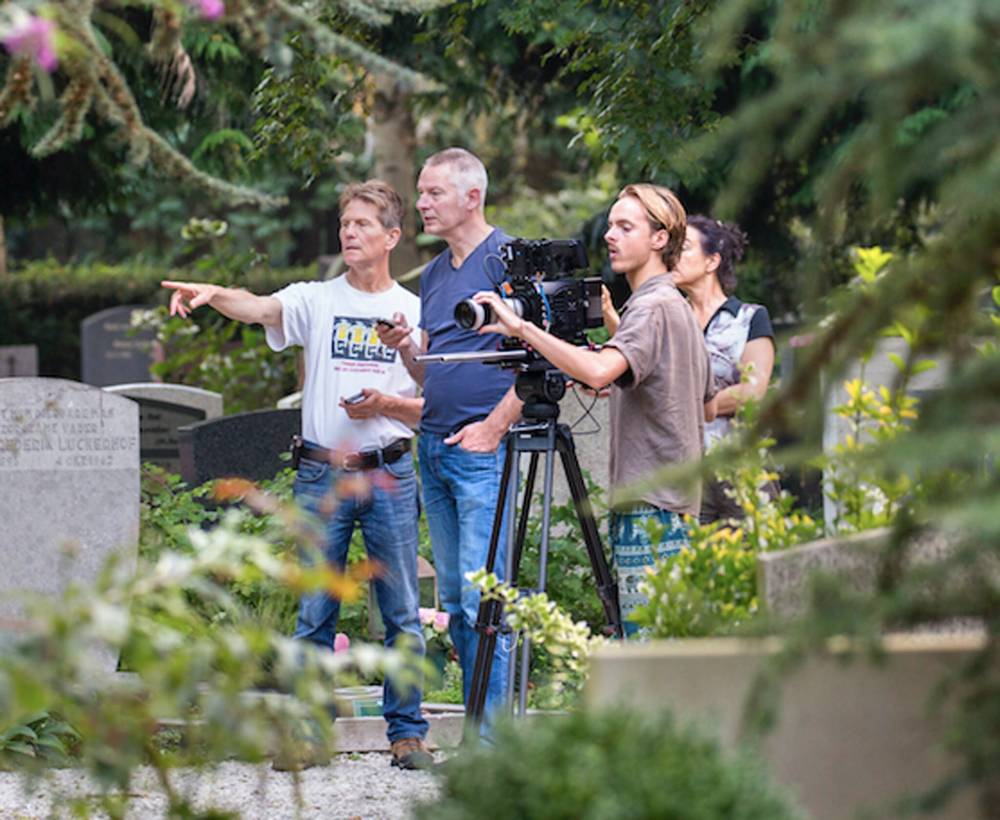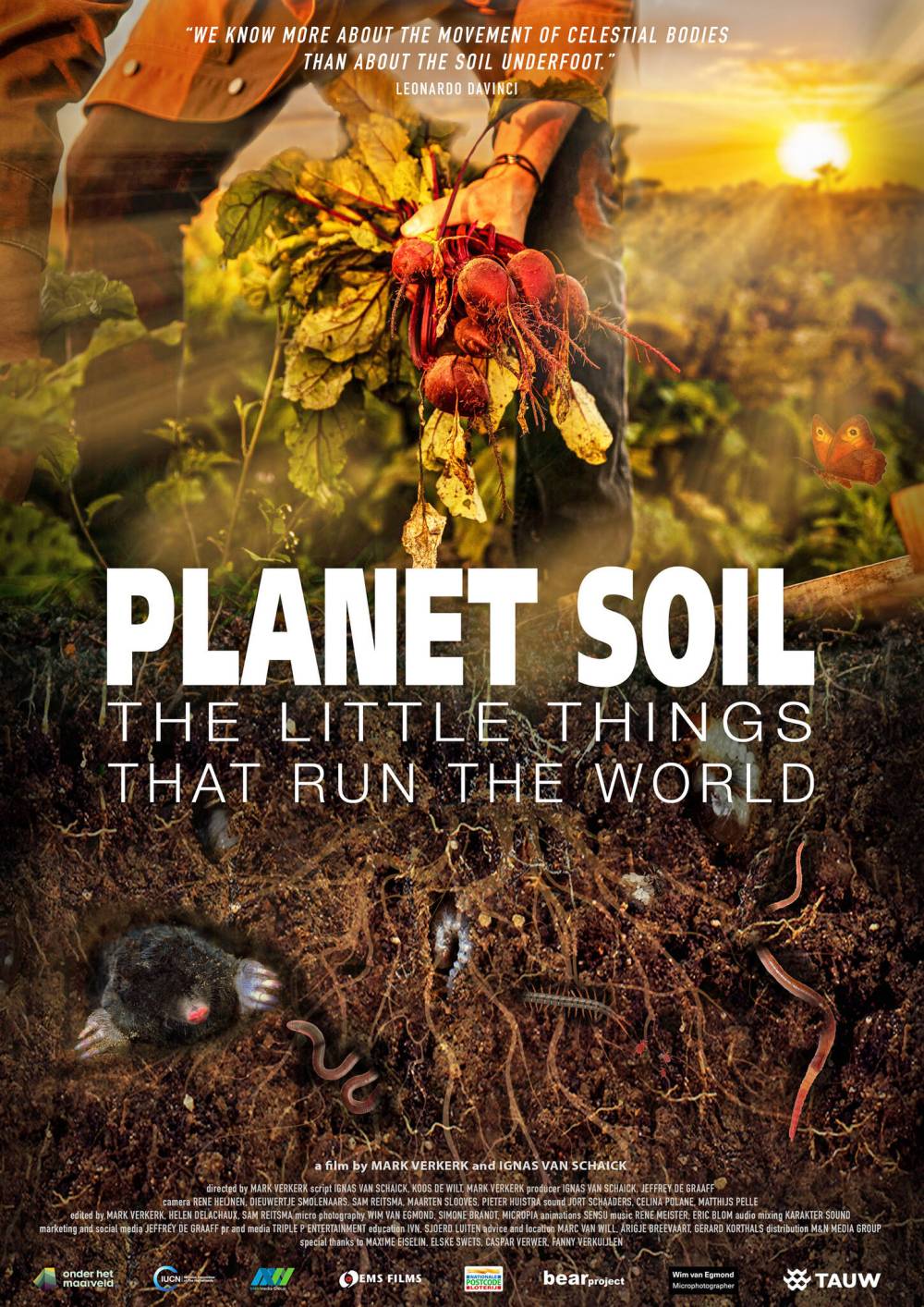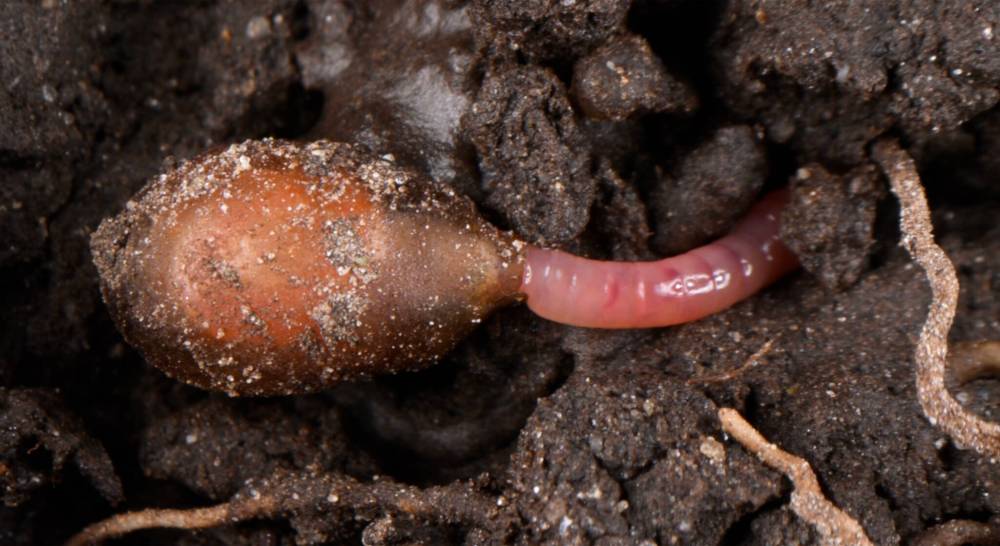Planet Soil digs deep
Award-winning film captures the hidden world beneath our feet
Advertisement
Read this article for free:
or
Already have an account? Log in here »
To continue reading, please subscribe:
Monthly Digital Subscription
$0 for the first 4 weeks*
- Enjoy unlimited reading on winnipegfreepress.com
- Read the E-Edition, our digital replica newspaper
- Access News Break, our award-winning app
- Play interactive puzzles
*No charge for 4 weeks then price increases to the regular rate of $19.00 plus GST every four weeks. Offer available to new and qualified returning subscribers only. Cancel any time.
Monthly Digital Subscription
$4.75/week*
- Enjoy unlimited reading on winnipegfreepress.com
- Read the E-Edition, our digital replica newspaper
- Access News Break, our award-winning app
- Play interactive puzzles
*Billed as $19 plus GST every four weeks. Cancel any time.
To continue reading, please subscribe:
Add Free Press access to your Brandon Sun subscription for only an additional
$1 for the first 4 weeks*
*Your next subscription payment will increase by $1.00 and you will be charged $16.99 plus GST for four weeks. After four weeks, your payment will increase to $23.99 plus GST every four weeks.
Read unlimited articles for free today:
or
Already have an account? Log in here »
Hey there, time traveller!
This article was published 19/08/2023 (824 days ago), so information in it may no longer be current.
A new film, Planet Soil, by Mark Verkerk and Ignas van Schaick, explores the interconnected web of life beneath the soil surface and aims to raise awareness about the importance of healthy soil and the need to restore soil biodiversity. Planet Soil has garnered international attention and received numerous awards including prestigious awards from the New York Science and Nature Film Festival, Deauville Green Awards, and European Cinematography Awards, as well as Melbourne Documentary Film Festival Official Selection 2023. Planet Soil also won a prize in France and was a GreenScreen Film Fest nominee for best science film. The film is currently playing in theatres and cinemas in the Netherlands.
Recently I talked by phone to Ignas van Schaick, producer of Planet Soil. My first question to him was, when do Canadians get to see this important new film about the crucial role that healthy soil plays in all our lives but reveals the hidden world beneath our feet in a groundbreaking new way? The film is scheduled for international release this fall, said Van Schaick, but currently there is no partner for theatrical release in Canada. The film has been submitted however to the Vancouver International Movie Awards and the winners are then considered for online screening.
Van Schaick is a Dutch film producer who lives in Amsterdam. He has had an interest in nature since his youth. Fifteen years ago, he began producing nature-oriented films and has worked with BBC, National Geographic, and Discovery Channel. He decided to focus on documentaries about nature in Holland and in 2013, his film The New Wilderness, was a huge success which attracted one million viewers. “That was unbelievable for the genre of nature films,” said Van Schaick, “and of course, nature productions take a lot of time to prepare and fund and execute and normally we take about three to four years for each film production. The starting point for all our films is to make the unseen seen.”

Planet Soil photo
The film Planet Soil delves underground to capture the hidden world beneath our feet. Shown: Mark Verkerk, left, and Ignas van Schaick.
Soil is the foundation of life on earth. Van Schaick was fascinated by the life beneath the ground and by its importance. But the challenge was not only to capture moving images of the teeming micro-life beneath the soil surface — microorganisms like fungi and bacteria as well as species like springtails, nematodes, mites, and other small creatures — but also to show their interactions. “Our aim was to highlight the role these underground communities play in tackling serious problems in our world today and what is being done to restore soil’s biodiversity but also make the film relatable to a broad audience,” said Van Schaick.
Filming this underground adventure was no small feat. It was not as simple as digging a hole in the ground and placing a camera there, said Van Schaick. “We had to create a studio environment to be able to film this micro-life. We used several techniques but there wasn’t a lot of information available, so we asked scientists in Holland who worked with microscopes to help us build a filming set.” The film’s microcinematography and brilliant time-lapse photography captured astonishing images of the behaviour of soil microorganisms. “There were some discoveries we made about how to handle the really challenging way to film very small creatures,” said Van Schaick. “Of course, you not only have to film underground but also the life just above ground and tell the story of the relationships between plants, insects, and microorganisms.”
Ever wonder about the intricate processes that happen when you throw food scraps on your compost heap? The film delves into how fungi convert organic matter and how the roots of plants reabsorb the nutrients. There are also scenes of a garden being planted to illustrate the connection between healthy soil and healthy food. The film crew worked with AMOLF, a research institute in Holland and the University of Wageningen which is the only university in the Netherlands to focus specifically on the themes of healthy food, living environment, and biodiversity.
The film features Toby Kiers, a renowned professor of evolutionary biology at the Vrije Universiteit, a public research university in Amsterdam, as she and her team work to map fungal networks. Kiers is a recent recipient of the NWO Spinoza Prize for her research on the symbiotic partnerships between fungi and plants.
Van Schaick’s films have been available through streaming platforms such as Netflix and Amazon Prime, but he is also focused on unique ways of distributing Planet Soil. He wants to connect with people and organizations who are genuinely working on biodiversity and soil health. In Holland, starting August 25, a Planet Soil farmers tour will run for one year. “The film will be shown at a number of regenerative farms that are working on biological farming and the purpose of this is to start a conversation with farmers, their neighbours, as well as consumers, and stakeholders such as municipalities so they can use the film to start a discussion about the way we should deal with nature, our food, agriculture, and to talk about healthy soil,” said Van Schaick. “We are trying to find all those communities. For instance, we are now working together with the Ministry of Foreign Affairs in Holland to be able to reach out to African countries who are concerned with food security. We are trying to use the film as a means of inspiring people about the value of soil and to inspire projects to restore soil biodiversity for a healthy food supply.”

Planet Soil photo
Planet Soil is an award-winning film by Mark Verkerk and Ignas van Schaick.
Van Schaick welcomes inquiries. “We have created our own online platform — Cinecheetah.com — to be able to distribute our films worldwide. The international version of the film will be launched on this site this fall. In September we are launching an English dubbed version. We also created a shorter version of the film for children which shows kids exploring and learning about the soil and growing vegetables. This was also released simultaneously in May with the adult version and is doing very well. We are also launching an English dubbed version of the junior film.” Van Schaick can be contacted by emailing Ignas.vanschaick@mn-mediagroup.com.
Springtails, woodlice, fungi, nematodes, mites, earthworms, slugs, spiders, or snail eggs typically don’t show up on the big screen in starring roles, but Planet Soil makes the invisible visible and is a rare tribute to the vast underground community on which plants and humans depend. Understanding and appreciating the intricacies of soil and raising awareness of soil’s ability to regenerate and support biodiversity has the power to make our world a more sustainable place to live.
colleenizacharias@gmail.com

Planet Soil photo
Planet Soil captures in amazing detail an underground world teeming with life. Shown: an earthworm.

Colleen Zacharias
Gardening columnist
Colleen Zacharias writes about many aspects of gardening including trends, plant recommendations, and how-to information that is uniquely relevant to Prairie gardeners. She has written a column for the Free Press since 2010 and pens the monthly newsletter Winnipeg Gardener. Read more about Colleen.
Every piece of reporting Colleen produces is reviewed by an editing team before it is posted online or published in print — part of the Free Press‘s tradition, since 1872, of producing reliable independent journalism. Read more about Free Press’s history and mandate, and learn how our newsroom operates.
Our newsroom depends on a growing audience of readers to power our journalism. If you are not a paid reader, please consider becoming a subscriber.
Our newsroom depends on its audience of readers to power our journalism. Thank you for your support.

